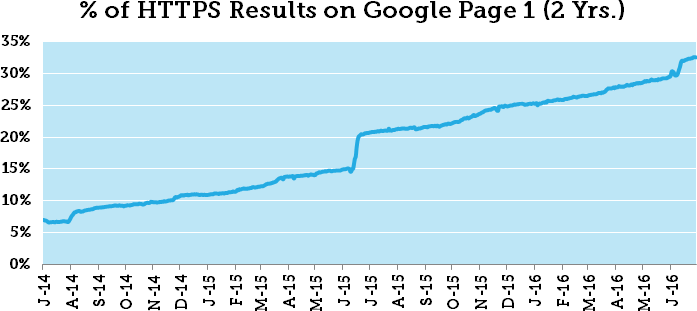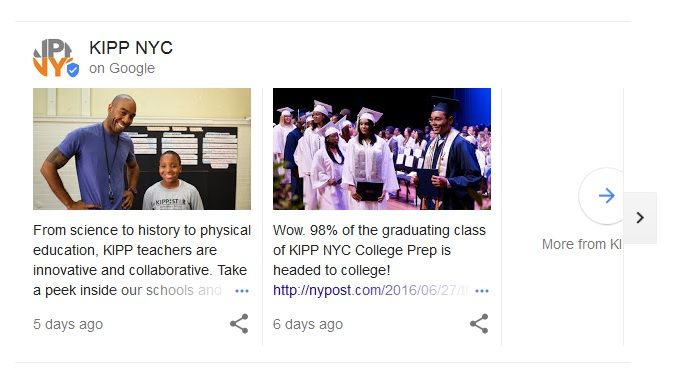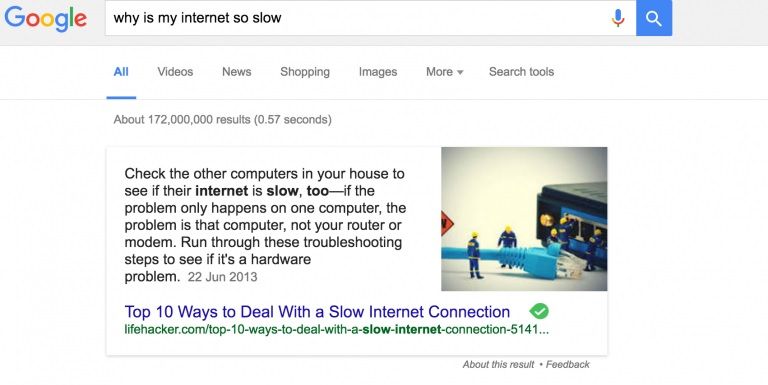Rebecca here, filling in for Christopher this week – and yes, these are some nice, roomy shoes I’m standing in, thanks for asking.
I don’t have any witty comments to make about the current state of UK politics, so let’s dive straight into the search-related news you might have missed while you were outside cloud-gazing, collecting butterflies, or (if you’re British) making the most of the fact that we can still travel freely between other EU countries…
As usual, Google is where it’s at this week, with news that HTTPS websites account for a third of search results on page one, an increase in the number of search results that receive a Quick Answer Box, and does Google’s newest acquisition mean it’s finding new ways to watch us all creepily?
Google is increasing the number of queries that receive a Quick Answer box
Jim Yu reported for Search Engine Watch this week on the fact that the portion of Google search results which received a Quick Answer box has increased from just over 20% in December 2014 to more than 30% in May 2016.
A Quick Answer, also known as a featured snippet, is when Google pulls content from a trusted, high-ranking website that will directly answer a user’s query and places it at the top of the SERP so that they can find the information they need without having to click through to another site. It can be an awesome way to dominate the SERP without having to fight for the top position.
Jim looked at the impact that Google Quick Answers have on brands, and broke down the three-step framework for getting your content into a quick answer box. So now you can win the game without even playing it, too!
Why should you use featured snippets? "It lets you win the game without playing" @STATRob #BrightonSEO
— Search Engine Watch (@sewatch) April 22, 2016
30% of Google search results are HTTPS websites
A new study from Moz has revealed that more than 30% of websites on page one of Google search use the HTTPS protocol. We know that HTTPS has been a “lightweight ranking signal” for Google since 2014, and the data that Moz has been tracking bears that information out.
Christopher Ratcliff looked at how the share of Google search results on page one that use HTTPS has climbed from an initially tiny fraction in August 2014 to a significant share of the results.

As Christopher put it,
“The results are definitely enough to give SEOs pause for thought when it comes to considering whether to switch their sites to a secure protocol.”
Mobile searches on Google have now exceeded desktop – how has the landscape of search changed?
Jason Tabeling looked at how the landscape of search has changed now that, for the first time ever, mobile searches on Google have exceeded desktop. “To account for this massive shift, Google has made some of the most drastic changes to search results in years,” including removing right-hand side ads and adding a fourth paid listing above organic search results, causing mobile results to be filled with ads.
Jason broke down the data on the number of times paid ads, shopping results or local listings appear in search results and evaluated how the information should affect your search strategy.
Google acquires image recognition startup Moodstocks
Google announced yesterday that it has acquired Moodstocks, a French startup specialising in machine-learning-based image recognition technology for smartphones.
As the International Business Times reported,
“Following the acquisition, which is expected to be completed in the next few weeks, the Moodstocks team will join Google’s R&D team in Paris where they will continue to “build great image recognition tools within Google”.”
Between the Twitter acquisition of Magic Pony two weeks ago and Amazon’s acquisition of AI startup Orbeus in April, it seems that visual processing and machine learning is where it’s at for major tech companies.
The Sun gave a particularly hysterical take on this development by announcing that Google had revealed plans to put “eyes in machines” and that “campaigners” had urged Britons to “cover up cameras on smartphones and computers”. Er… that sounds a little impractical.
 Photo by Patrick Barry, available via CC BY-SA 2.0
Photo by Patrick Barry, available via CC BY-SA 2.0
But in all seriousness, this latest addition to Google’s R&D department could be the first step towards giving Google the capability to identify and run a search for objects in the physical world, à la CamFind.
And if Google really is watching me, well, maybe it’ll finally be able to tell me where I left my keys.
Google is experimenting with another use for Google Posts
The SEM Post reported this week that Google has been spotted expanding its use of Google Posts, a new(ish) feature combining elements of social publishing and rich cards, into more ‘ordinary’ search results.
Moz marketing scientist Dr. Pete Meyers originally noticed the posts appearing in search results for a charter school in New York, KIPP NYC. Google debuted the feature, which I believe still lacks an official name (but has been dubbed “Google Posts” by the search commentariat), back in March as a platform for US presidential candidates to put across their policies.

It was later seen expanding the feature to include a select handful of local businesses, and then using it to cover the I/O developer conference in May. None of these past uses of Posts show up in search results any more – and at the time of writing, KIPP’s appears to have disappeared too – making them a bit like a pop-up soapbox for select entities (and keeping us all guessing about what Google’s eventual plan is for Posts).
What’s interesting is that although the KIPP NYC posts were only just spotted in search, a scroll down their Google Posts page shows that the school has been using Google’s new feature since April. In other words, there could be any number of other lucky users or groups quietly using the platform and waiting for the hallowed spotlight of Google to finally, finally shine on them. And we wouldn’t know.
If you want a shot at joining their ranks, the waiting list is still open.
The article Five most interesting search marketing news stories of the week was first seen from https://searchenginewatch.com


No comments:
Post a Comment